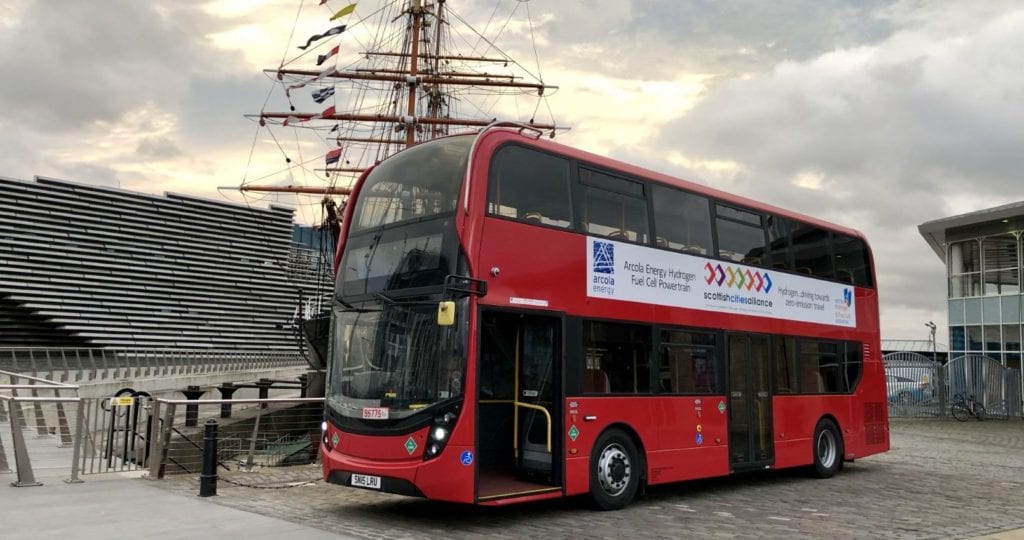Maddy Breen, Marketing Manager at Arcola, talks about hydrogen buses and sustainability in the arts.
By the end of January 2018, London air pollution reached the legal limit for the whole year.
There is a word for drought and a word for famine. We have no word for a lack of clean air. The lack of language seems odd, when you remember that air pollution has been reported as a contributing factor to 10,000 deaths in London each year. It seems even odder when you remember that in 2017, the World Health Organisation declared that the air in 44 British cities was too dangerous to breathe.
In November 2018, Sadiq Khan declared air pollution in Lewisham a health crisis. Despite parents issuing impassioned pleas about pollution and stunted lung growth, and environmentalists begging for fewer cars on the road, London has the title of the second-most gridlocked city in Europe. The impact on humans is huge and widely reported, and the impact on our environment is similarly damaging.
News stories like these are always dispiriting, especially when your working life is so entrenched in the city. Not only do you start fear for your own lungs (and skin, as the growing trend for anti-pollution skin care shows), you start to wonder how much of this could you change, whether you should stop getting Ubers and start planting trees on any green patch of land you see.
It can be particularly tricky to reconcile working in theatre with an eco-conscious mindset. Theatre does seem inherently wasteful, when you factor in stage lights burning away each night, resources used on set building, leaflets and programmes printed then pulped. Yet theatre is a community-driven industry; we have a responsibility to our community.
Sustainability is fundamental to our ethos at Arcola and is in the very fabric of our building. Solar panels on our roof have saved over 8 tonnes of C02 since 2012; our LED lights use 89% less electricity than conventional fluorescent lighting; we have eco-friendly loos; we’ve even installed a DC microgrid system to reduce waste from AC-DC conversion (rock on). 90% of beers sold in our bar come from East London breweries, reducing our carbon footprint from deliveries, and our Participation team lead sustainability tours and workshops throughout the year.
It’s also at the heart of our decision-making processes whilst making theatre. Last year we experimented with low-energy LED stage lighting in our Grimeborn Opera Festival, resulting in a 36% power saving and our winning The Stage‘s 2018 Sustainability Award.
But what about beyond the theatre – in the community to which we are responsible?
Since 2010, our sister company Arcola Energy has been working on the integration of hydrogen and fuel cells for clean energy and transportation.
Last month, they made a major breakthrough – securing a partnership with Alexander Dennis Limited (ADL) to make new, hydrogen-fuelled double-decker buses. The on-board fuel cell generator converts hydrogen to electricity to keep the battery topped-up and the electric motors running, with the only emission being water vapour. Trials of the bus have been a huge success, and ADL is now taking orders (city councils, pick up that phone now!).
90% of Arcola Theatre’s audiences now take public transport to the theatre. That’s a fantastic achievement. But imagine if each bus they took produced no toxic emissions.
We’re pressed for time to stop climate breakdown. But through a combination of cross-industry collaboration and intentional implementation (actually implementing projects and schemes, rather than just talking about them), we can make a real difference in our cities, our businesses and our world.
To find out more, visit Green Arcola.


